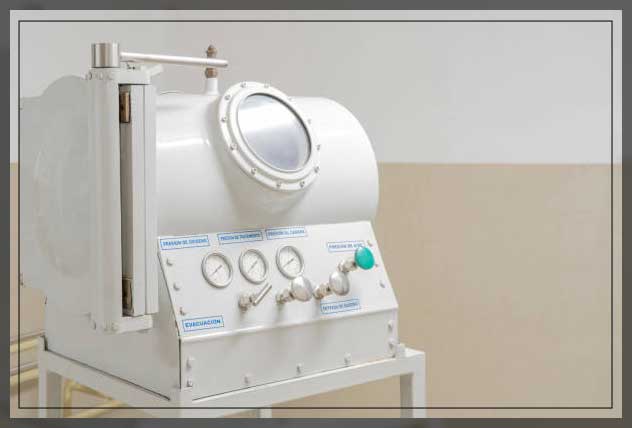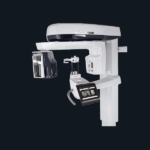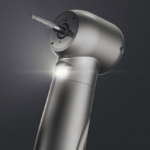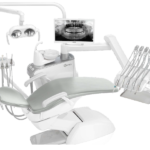
Do you know that Medical Compressor Machine is an important part of any medical facility and medical air plant?
A number of medical facilities and medical air plants make use of medical compressor machines.
These are unlike any other compressor available in the market and are designed to meet the demands that the medical industry presents.
Moreover, this machine must run continuously and have measures in place to make sure that they never fail.
Above all else, the compressor machine supplies clean air without any contaminants in it.
According to ISO, International Organization for Standardization, and NFPA, National Fire Protection Association, compressed air that you use for medical air supply should never come into contact with contaminants of any kind.
Most medical compressor machines and vacuum systems need an NFPA 99 certification from a certifier with verification.
This is important before you can turn on and put the machines into operation.
Keep on reading to learn more about it in detail.
Use of Medical Compressor Machine
There are a number of different uses for these medical machines within a medical facility.
Some of these are:
Patient Breathing Medical air compressor helps to supply clean air to patients under sedation or for those who are facing problems breathing on their own.
Laboratory Use You can use them to power the equipment that performs blood analysis, chiropractic tables, mammograms, X-rays, oxygen generation, nitrogen generation, and more.
Powering Hand-held Medical Tools In order to power surgical instruments you can use a compressor machine.

These tools perform functions like puncturing, drilling, and other surgical applications.
Air Filteration in Duct System Another use of these machines in a medical facility is the use of clean air in filtration and duct systems.
Moreover, all air within medical facilities needs to be clean and pure.
Sterilization of Equipment Compressor machines also have uses that help to power clean and sterilize systems.
Learn more about Lab Sterilization Equipment here.
Application of Compressed Air
The following are some of the popular applications of compressed air in both medical and dental fields:
Resistance for Rehabilitation Equipment Though equipment for physical therapy and rehabilitation is the same in form as work-out machines at the gym.
Free weights can prove to be dangerous to those recovering from serious injuries or ailments.
This is why rehab centers are turning compressed air to provide resistance it needs for medical-grade physical therapy.
Moreover, it allows therapists to delicately adjust the resistance without running the added risk of moving weights.

Stone Management Many doctors are turning to pneumatic lithotripsy, where they use compressed air to manage stones in the kidneys, bladder, and ureter.
It is important to note that this kind of precision application needs an equally precise machine.
Learn more about Dental Laboratory Equipment List here.
Other Applications
Some other applications are:
Tools Within the dental industry, compressed air power tools whether you use them for cleaning, polishing, or drilling are important.
Because such tools are more reliable and easier to maintain, they provide a lot of advantages to electrically powered tools.
Dental Air Other than powering tools, the dentist uses compressed air directly during the cleaning and drying process.
Moreover, they use it to dry sections of the mouth in order to make dental hygiene processes easier.
General Precision Cleaning Within the medical and dental industries, there are certain processes that need precise cleaning.
For instance, the preparation of dentures.
Such air allows technicians to control the airflow of cleaning instruments while also performing action without touching them.
Orthopedics You can get treatment for Calcancel spurs, tennis elbow, and patellar apex syndrome with the help of compressed air-supplied shock waves.
It is a valuable treatment as it allows doctors to perform minor orthopedic treatment without the use of anesthetics.
Learn more about Dental X-Ray here.
Compressor Machine for Medical Industry
Compressors for the Medical Industry are:
1# Oil-less Reciprocating Compressor These allow for intermittent cycles.
Such machines also help to make sure that the contaminants do not reach the patients.
These cost-effective compressors are fairly flexible.
However, changing out belts and pistons is important once they wear out. If you fail to do so, it can result in a temporary shutdown or malfunction.
2# Oil-Free Screw Compressors These are energy efficient and offer low noise.
With no oil usage, the risk of contamination is practically zero and you can use them in medical device manufacturing and in hospitals themselves.

Moreover, these machines have uses in large medical device manufacturing companies.
3# Oi-Free Compressors Scroll compressor has advantages just like Oil-less Reciprocation compressor.
However, these machines are much smaller in size, operate with little to no noise, and are often low-maintainance.
For this reason, you can see them in smaller clinics and facilities.
What’s more, is that the risk of contamination is not a factor with these types.
Make sure to keep in mind that these compressor machines need annual maintenance.
Learn more about Sterilizer Machine: Uses, Guidelines, and More here.
Cleanliness Requirement for Compressor Machine
While there is a number of application of such machines in the medical and dental industry, these systems also need a higher standard for air quality.
This is because such air has uses within the human body.
In order to be confident in serving your healthcare facility provides to the patients and remain compliant with NFPA 99 regulation, there are things to consider.
NFPA 99 regulations are from the National Fire Protection Agency
These standards are the current benchmark by which all medical facilities judge their compressed systems.
Let’s discuss the categories of care as follows:
Categories of Care
Recent updates on NFPA 99 regulation are into four categories.
These are:
Category 1 System delivers compressed air in a capacity in which any interruption can cause harm to the patient, like life-support systems.
Category 2 systems have tolerance for short interruptions with a minimal effect on patient care.
Systems that support patient care are Category 3
However, significant downtime can directly affect the care of patients.
Moreover, the loss of these systems can cause discomfort but would not otherwise cause harm to the patients.
Systems that experience downtime with zero impact on patient care are Category 4
Learn more about Disinfectant Machine here.
Dew Point for Compressor Machine
As part of current NFPA 99 regulations, a dew point of medical air must be at or below the frost point at every point within the system.
This means that you cannot install the dryers immediately before the end-point of the system.
Moreover, the regulation also states that the dew point is at or below the print front regardless of how much pressure the system is creating.
Furthermore, this also means that you will have to carefully handle dryers by lowering the dew point while the system is operating at maximum capacity.
In order to make sure that proper dew point maintenance is there, you can install monitors and dew point alarm systems at both the end-point and the source.
Further Thoughts
It is important to note that when you expose moisture to the environment will condense, forming droplets of water.
This can become a breeding ground for microorganisms. However, by delivering 100% dry air, you can make sure that respiratory systems are bacteria-free.
Learn more about Sterilization and Disinfection here.
Tips for Compressor Machine
Some of the tips that can help make sure that this machine stays functional and your medical facility will stay running smoothly are:
Regular Service and Maintainance Compressor machines’ parts tend to wear down over time.
You will need to routinely replace old parts in your system and it will help to make sure the system keeps running.
Make sure that your maintenance team makes schedules with the staff members that have experience.
Moreover, make sure that the person who performs maintenance services is ASSE 6040 certified.
This helps to make sure that the person working on your system is doing so up to medical standards.

Extra Precautions in Summer During summers, rising temperatures can cause breakdowns and parts of the machine to wear out.
If your staff members do not care for the system properly, it can lead to extensive damage to the these machines.
What you will need to do is:
- home your compressors in a ventilated room
- perform checkups on the dryer
- dust electrical components
- regular services your compressors
Learn more about Suction Machine here.
Final Thoughts
After understanding a number of factors, requirements, and considerations for medical compressor machines, the question is your mind would be from where you can make a purchase for compressor machines that are high quality.
At Engiomed, we have the highest quality machines. Moreover, we also offer the essential accessories to make sure that the machines meet the exacting requirements for quality assurances within your medical facilities.
As with advance compressor machine technologies, our commitment to quality construction extends to include an equal commitment to service and support.
Thus, if you are looking to improve the these machines or trying to find ways to improve energy efficiency, we can help you to explore cutting energy costs while improving overall performance.
Make an appointment today and our professionals can help to find the best compressor machine you need for your medical facility.





Comments